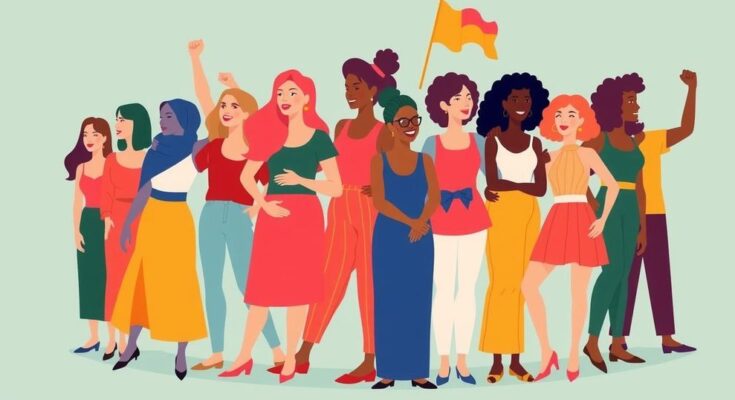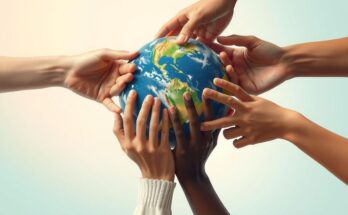Women’s human rights defenders (WHRDs) are pivotal in championing gender equality and protecting human rights worldwide. They bravely confront oppressive systems and advocate for marginalized communities, often risking their safety in the process. WHRDs encompass a spectrum of backgrounds and operate from grassroots levels to international platforms, addressing many issues including violence against women, reproductive rights, and environmental justice.
Their crucial work, however, comes with inherent risks. WHRDs frequently face gender-based violence, harassment, and threats from both state and non-state actors, including extremist groups. Such a perilous climate emphasizes the urgent need for strong support systems, especially financial backing from global donors committed to empowering these brave advocates.
Global donors provide essential resources, enabling WHRDs to effectively carry out their missions. Funding from international organizations, foundations, and governments facilitates training, legal aid, and security measures vital for WHRDs. Additionally, donor support helps build networks, promoting global solidarity among women defenders while simultaneously enhancing their credibility on international platforms, thus amplifying their vital voices for human rights.
Certain prominent donors are crucial in supporting WHRD initiatives. Institutions like the United Nations Development Programme (UNDP), Global Fund for Women, and the Ford Foundation have dedicated substantial resources to empowering women activists. For instance, the Global Fund for Women has disbursed millions in grants to grassroots organisations, targeting critical issues like economic empowerment and health rights.
The role of donor support has a transformative influence on WHRDs. Financial assistance allows the deployment of community-specific programs, such as workshops on rights education and legal support for those facing injustice. This upliftment facilitates a vibrant culture of resilience and activism among women, while also ensuring their safety through enhanced security protocols where necessary.
Despite their strides, WHRDs encounter profound challenges, primarily stemming from pervasive violence associated with their activism. This violence, which can range from physical attacks to psychological intimidation, dissuades many from engaging with activism. Furthermore, systemic barriers often limit their access to necessary resources and leadership roles within organisations, hindering effective responses to gender-based issues and perpetuating inequality.
To maximise their impact, global donors must tailor support strategies to meet WHRDs’ unique needs. Engaging directly with women activists ensures their voices guide funding priorities while flexible financing allows organisations to swiftly adapt to the ever-changing socio-political landscapes they navigate. Additionally, investing in skill development for WHRDs strengthens their capacity for advocacy and leadership.
Success tales of WHRDs illuminate their powerful impact on society. In nations like Colombia and Mexico, women activists have significantly influenced peace processes addressing gender-based violence. Similarly, in Africa, grassroots efforts have drastically reduced the rates of female genital mutilation (FGM) through community education initiatives, underscoring the transformative power of empowered women’s voices.
Looking to the future, the outlook for global donor support remains encouraging yet demands unwavering commitment. Rising awareness around gender-based discrimination calls for prioritised long-term investments in WHRDs. Building partnerships with local organisations fosters inclusivity within the human rights landscape, promoting diverse voices and resilience against emerging threats. Exploring innovative funding routes, such as crowdfunding, will also develop more adaptable support systems tailored to the actual needs of WHRDs.
In conclusion, supporting women’s human rights defenders transcends moral obligation; it’s vital for advancing global development and social justice. Elevating their contributions while addressing challenges through focused donor support paves the way for an equitable future, where every individual can exercise their human rights free from fear or bias.
This article explores the vital role of women’s human rights defenders (WHRDs) in advocating for gender equality and social justice while highlighting the significant challenges they face. It emphasises the indispensable support provided by global donors, which enables WHRDs to implement impactful initiatives, combat systemic barriers, and ensure their safety. Notable achievements of WHRDs demonstrate their influence in driving societal change, reinforcing the necessity for ongoing, tailored donor support moving forward.
Women’s human rights defenders are essential in promoting social justice and equality. However, they face significant challenges, including threats and systemic barriers. By supporting them through targeted financial and operational aid, global donors can create a safer environment for activism and foster impactful change. The success stories of WHRDs showcase the profound influence they have in their communities, making continued support critical for future progress.
Original Source: www2.fundsforngos.org



